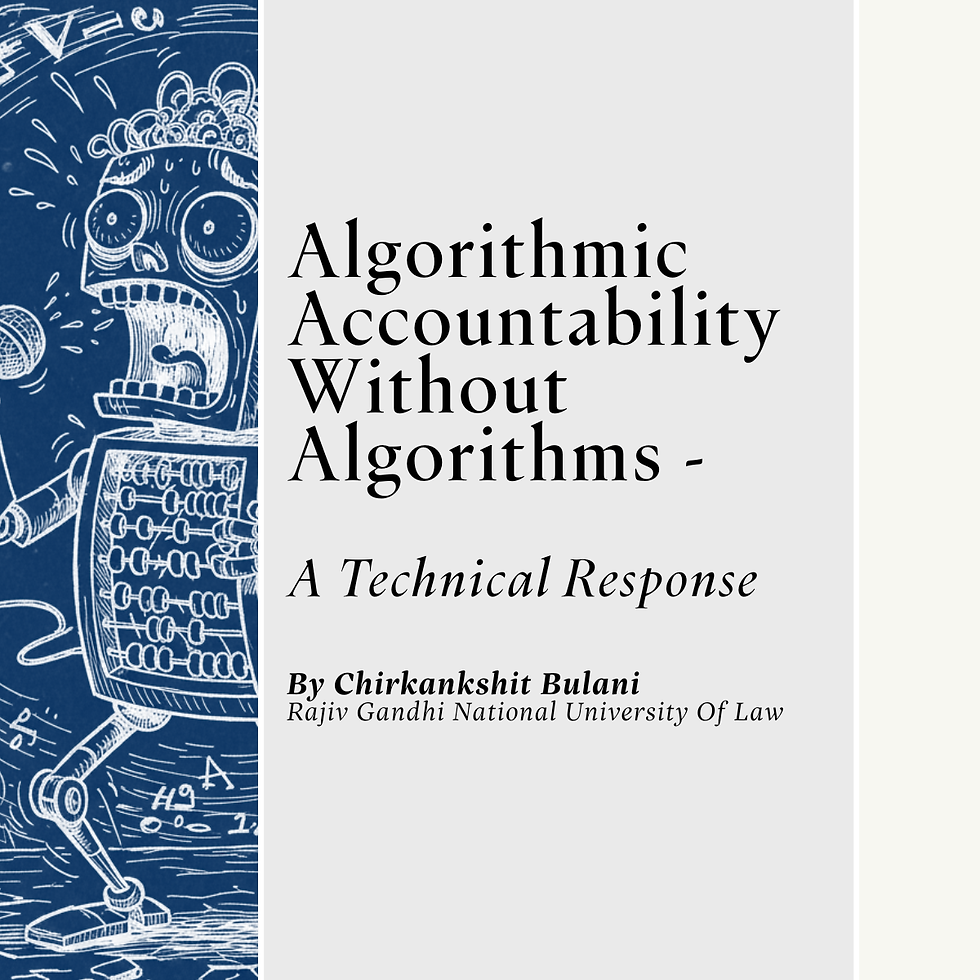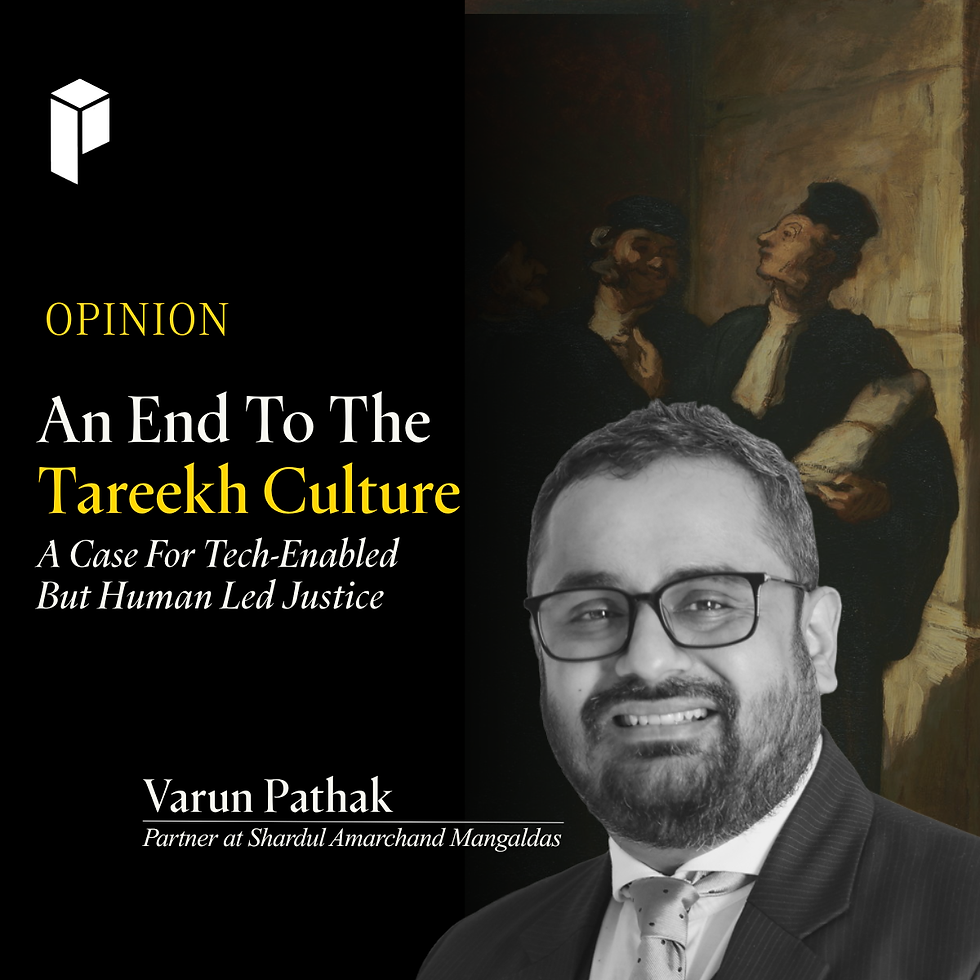Scientific and Medical Aspects of Human Cloning
- The Legal Journal On Technology
- Nov 21, 2020
- 5 min read
Updated: May 27, 2025
This article is written by MIHIKA SWAROOP of ICFAI University, Dehradun
Human reproductive cloning is a supported reproductive technology which aims to create a human being. It has been widely discussed in the world today with a number of political, theological, cultural, science and medical issues involved. In a workshop, the panel from The National Academies reviewed and discussed literature on science, medical, legal concerns. It included those who, for the scientific and medical reasons, either condemn or defend human reproduction cloning, from animal cloning experts, endorsed breeding technologies and research, technology, and legal policy. We are now aware that the case has not proven that human reproductive cloning can at this time lead to less adverse effects than that of other mammals after careful consideration of the questions posed.
SUGGESTIONS MADE BY THE PANEL:
Reproductive cloning should not be practiced now. It is risky and it will possibly crash. Consequently, the panel unanimously endorses the idea that the practice of human reproductive cloning should be legally prohibited. For this reason, human reproductive cloning is characterized as a placing of a human blast cyst in the uterus derived from the technique that we call nuclear transplantation. To conclude, we have discussed the important scientific and medical issues such as reports of cloning of other organisms and the issues related to the assessment of all research involving humans. Within 5 years, the scientific and medical aspects of this prohibition should be investigated. A recent science and health analysis shows that the procedure is likely to be safe and successful and a wide National Discussion on social, religious, and ethical problems suggests that reassessment of the ban is necessary. The interdiction should be re-examined after at least two requirements have been met.
Finally, the scientific and medical considerations supporting a prohibition of human reproductive cloning at present do not extend to nuclear transplantation for stem cell development. The panel is in favour of the conclusion of a recent study by the National Academies that recommends that biomedical research using nuclear transplantation be enabled to produce stem cells because of its tremendous potential to develop new medical treatments for life-threatening diseases and advances in fundamental science. There is support for a wide national discussion on social, religious, and ethical issues.
FINDINGS THAT SUPPORT BAN ON HUMAN CLONING:
The panel based its support on the proposed ban of human cloning on the following aspects:
1. In order to determine the protection of reproductive cloning, the scientific and medical parameters used are the possible morbidity and deaths of the woman bearing the foetus and the child, as well as the risk of egg donor women.
2. Data concerning animal reproductive cloning using nuclear transplantation technology shows that only a small percentage of attempts have been successful; that many clones die during gestation, even in late stages; that newborn clones are frequently subnormal or death; and that procedures are prone to severe risks to the mother. Moreover, because of the large number of eggs required for such studies, far more women will be at risk for a single cloned attempt than for the reproduction of a child using the techniques currently employed for In-vitro Fertilization (IVF). These scientific and medical studies have led us to believe that procedure regarding the same for humans is dangerous.
3. There will need to be at least three conditions met prior to the protection of human reproductive cloning:
• The methods of animal reproductive cloning should be developed to a degree that was no more than that seen with current human-assisted reproductive technologies (ART) procedures, including inhumane primate anomalies, in cloned animals. If that could not be done, researchers could show the difference in cloning-related defects between people and other animals. Reproducible evidence showing that it is possible for a donor nucleus to be reprogrammed effectively and for animals to be properly imprinted is required, along with an understanding of how such activities are carried out.
• New methods will include the production of evidence of normal printing and reprogramming of the human pre-implantation embryos developed by nuclear technology. This idea would better be achieved if we first identified the usual reprograms and imprints in non-human primates and then recorded the significant similarity of the processes in pre-implantation human embryos.
• Methods to track effectively should be established in the general implantation of the cloning-related defect embryo and foetus in the uterus including gene expression and imprints' modifications.
4. The concerns involved in ethical research that an individual is likely to be cloned are medical ethics — specifically protecting members (egg donor, host mother, and children produced by cloning) in all research into human cloning. Participants in any research initiative in human cloning need complete protection as participants in human testing. It should also be noted that such protection is not strictly available to cloned foetuses, such as foetal surgery. There has not been human reproductive cloning before, and if it has ever been implemented, systematic research is needed. Such a study will certainly require a thorough investigation, including informed approval of the donors and the recipients of all biological material by the institutional review boards and other human rights protections.
5. If any attempts were made at human reproductive cloning, they would not only constitute groundbreaking therapy but science. The review boards will then review these proposals externally in order to ensure that the studies planned were sound both scientifically and ethically and that the interests and safety of all participants in the inquiry are safeguarded. This process of institutional analysis should be extended fairly to the public as well as private research and should be completely transparent.
6. Since medical and scientific evidence shows cloning procedures to be unsafe for people at present, it is no longer acceptable that an individual should be cloned using a nuclear transplant technology. The panel claims that no research or physician responsible is likely to clone a human. Nonetheless, there is no likely to be a fully successful voluntary mechanism to prevent reproductive cloning. Some organizations have already declared they plan to clone human beings and many of the requisite reproductive technologies are widely accessible in non-federally controlled private fertility clinics. Consequently, the panel states that a legally enforceable prohibition that imposes significant restrictions has a far greater ability to avoid an attempt to clone a human being using these techniques than the voluntary method or moratorium.
7. If no ban is enforced, some organizations can attempt to clone humans reproductively. Although such attempts are likely to fail, they are likely to pose serious risks to potential foetuses or newborn children and may damage the woman with a developing foetus.
8. There are fears that legislation or regulations banning reproductive human cloning would set a troublesome precedent in restricting advanced, experimental, and medical research. Modern scientific science is advancing rapidly, with unexpected and sometimes shocking results. It is expected that important new knowledge about the protection and applicability of human cloning for medical practice will be available at least every 5 years. This problem is addressed by providing an updated review of science, medical, and social problems every five years of any law or regulation.
9. Any future proceedings to determine the scientific and medical evidence for the cloning of a human will possibly include scientists, doctors, ethical practitioners, and the public. A committee that regularly issues science updates on animal cloning and routinely addresses the constituencies involved may encourage a public discussion. This body can derive its powers by way of the executive order, executive action under the Public Health Service Act, and/or legislation within the Department of health and human services. The debate should be organized to educate, among many other topics, the general public that clones are not accurate replicas but people with identical genetic material.
REFERENCES:
NATIONAL BIOETHICS ADVISORY COMMISSION. Cloning Human Beings, Volume I: Report and Recommendations of the National Bioethics Advisory Commission. Online at: http://bioethics.gov/pubs/cloning1/cloning.pdf.






Comments